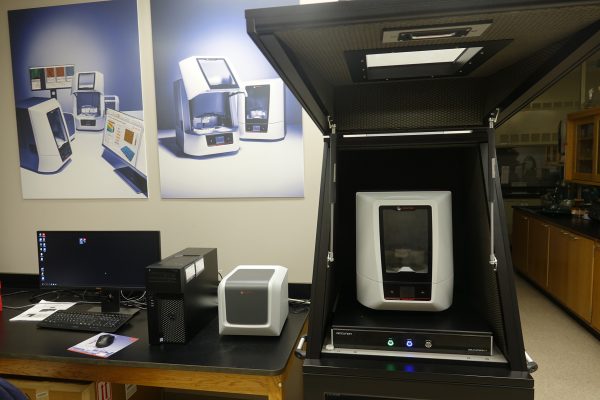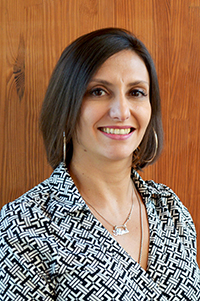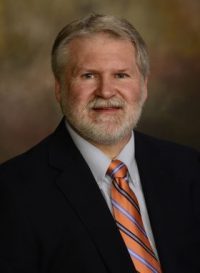A multidisciplinary faculty collaboration has led Auburn University to become one of only five sites in the U.S. to receive a new Tosca 400 Atomic Force Microscope, or AFM, on loan from the Austria-based scientific instrument manufacturer, Anton Paar.
Assistant Professor Maria Soledad Peresin of the School of Forestry and Wildlife Sciences led the effort to qualify for the AFM loan, teaming with Virginia Davis, the Alumni Professor in Chemical Engineering in the Samuel Ginn College of Engineering, along with Michael E. Miller, the director of the Auburn University Research Instrumentation Facility and an assistant research professor in Biological Sciences in the College of Sciences and Mathematics.
The Tosca 400’s capabilities are cutting-edge, combining premium technology with time-efficient operation. To get technical: The AFM uses a surface-scanning technique that has sub-nanometer scale resolution—meaning that the tool can measure materials so infinitesimal that their resolution or dimensions are less than one-billionth of a meter. The AFM is widely used to collect data on mechanical, functional and electrical properties at the nanoscale, in addition to topography and surface roughness studies.
The equipment loan is part of Anton Paar’s AFM Influencers Program, which selects influential scientists and universities to receive a long-term loan of the Tosca 400, which is then installed in their laboratories. The Tosca 400 system now resides in the Auburn University Research Instrumentation Facility, where five principal investigators and dozens of graduate students have been formally trained to use it.
These partnerships were established to build recognition for the company’s rapid, easy-to-use systems, said Kristi Folden, who oversees Anton Paar’s Surface Mechanical Properties line in the Southeast.
“Drs. Peresin and Davis were chosen due to their enthusiasm for this opportunity, the need for access to this technique to further their labs’ research, their heavily applied outreach to industry in the region and the rapid growth plan Auburn has for research in the coming years,” Folden said.
Peresin said the high-end laboratory instrument will significantly contribute to research and teaching.
“The AFM Influencer program at Auburn allows for easy access to this technique to advance and enhance the quality of our research efforts,” said Peresin, who considers the AFM essential to her nanocellulose research. “It will also enhance the service to our industrial partners while opening up the potential for my team to increase collaborative efforts with other Auburn units and other universities in the region.”
In October 2019, Anton Paar released five new modes for the Tosca AFM that support electrical and magnetic surface characterization—a major innovative upgrade. The upgrades include Magnetic Force Microscopy Mode, Electrostatic Force Microscopy Mode, Kelvin Probe Force Microscopy Mode, Conductive Atomic Force Microscopy Mode and Current Control Conductive Atomic Force Microscopy Mode.
With the company’s backing, Auburn was able to receive the AFM with the new modes included.
That advantage was the result of Peresin’s research and persistence, Folden said.
“Dr. Peresin was instrumental in providing the necessary justification to make the upgrade possible, bringing additional capabilities to campus that will garner faculty and student use, as well as attract industrial partners,” Folden said.
The aim is to make modern, easy-to-use AFM capabilities available for students and faculty campus-wide. Data from the system is included in several high-quality manuscripts currently under review in addition to multiple poster and oral presentations.
School of Forestry and Wildlife Sciences Dean Janaki Alavalapati said the company’s selection of Auburn as one of a handful of partnerships underscores the advanced and continuous scope of study within the school.
“This kind of initiative reflects the quality and diversity of our research,” Alavalapati said. “The ability to utilize the innovative capabilities of the Tosca AFM will most definitely provide a notable advantage to research being performed, both here on campus and in other facilities within the region.”
The Tosca 400’s placement will offer significant advantages to companies and other universities in the area, benefiting investigators in the Auburn research community and beyond.
(Written by Teri Greene)














